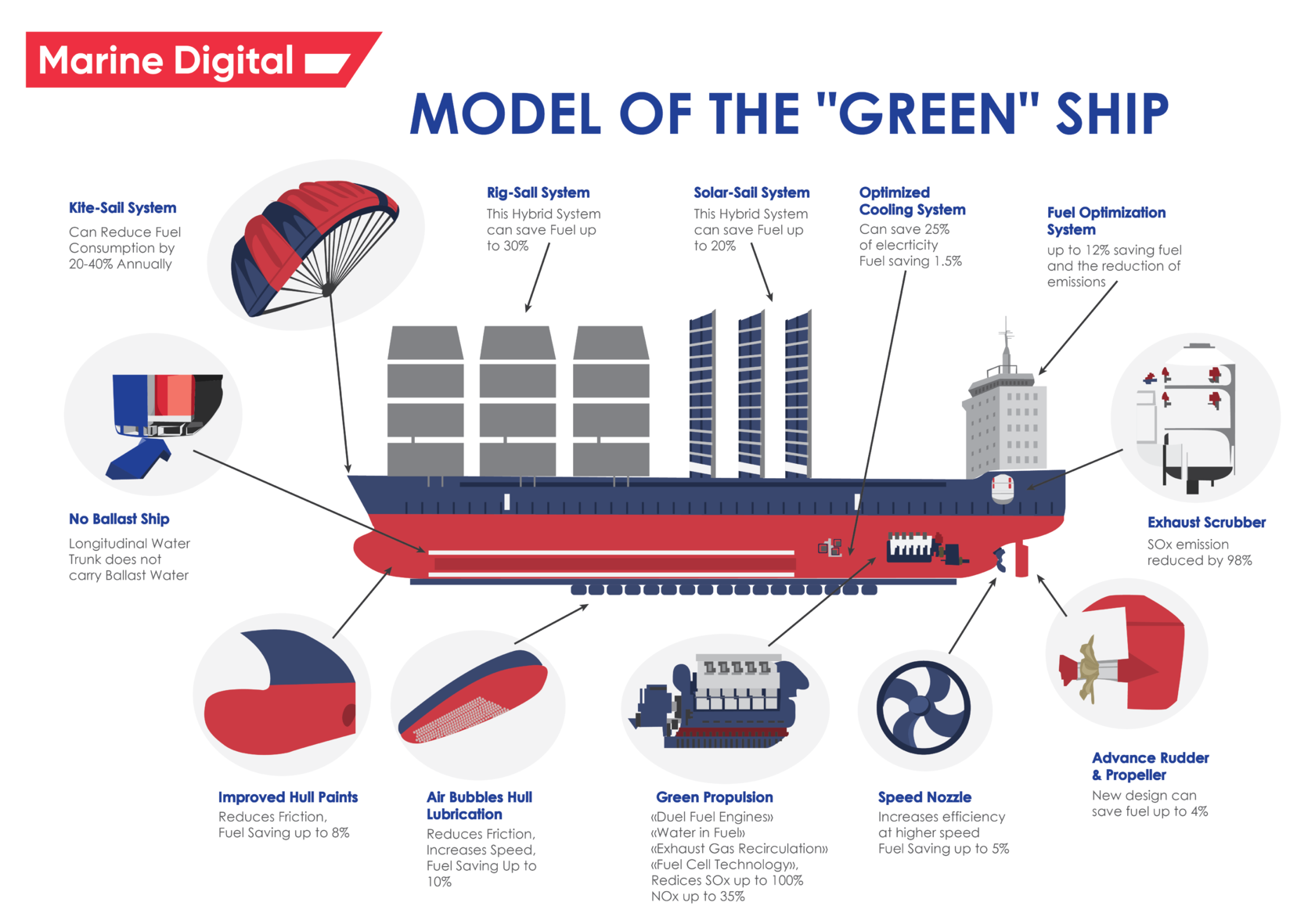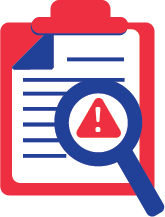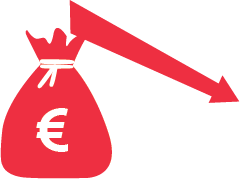Green technologies in maritime and shipping video review by Marine Digital
We present you with a video overview highlighting the key issues of maritime logistics, global trade, and the environment
In this video review we want to Highlight the key points faced by maritime logistics, global trade and the environment:
- Over 70% of the worldwide trade nowadays is carried by marine vessels
- In the past 20 years, the emissions increased by over 40% despite innovations in shipbuilding and regulations before 2020
- 50-80% of the oxygen we breathe is produced from the ocean
- Ocean freight traffic emission directly affects the ocean and climate state
- 70% of all ship emissions are within 400km of the land
- Estimates supported by IMO say ship energy consumption and co2 emissions could be reduced by up to 75%
- The shipping industry is the largest mode of trade in the world, сhoosing the right way of transformation is critical for the environment
HFO (heavy fuel oil) has been dominant in the industry since over 50 years. With alarming levels of harmful impurities & sulphur contents of 35000 ppm. They are very hazardous for the environment. The IMO initiated the transition of the entire world civil fleet from January 2020 to the use of marine fuel with a sulfur content of 0.5%. Shipowners are switching to the application of a new special fuel too. VLSFO (Very Low Sulphur Fuel Oil).
We shared some more Green Technologies being implemented for a greener shipping industry: Scrubbers, Exhaust Gas Cleaning Systems (EGCS), Kite Sail System, Solar Sail System, Rig Sail System, Advanced rudder & propeller, Speed nozzle, Improved hull paints Air bubbles hull lubrication and Fuel optimisation system.
We shared some more Green Technologies being implemented for a greener shipping industry: Scrubbers, Exhaust Gas Cleaning Systems (EGCS), Kite Sail System, Solar Sail System, Rig Sail System, Advanced rudder & propeller, Speed nozzle, Improved hull paints Air bubbles hull lubrication and Fuel optimisation system.
How will greener shipping be achieved?

Fuel optimization systems not only provide the amount of fuel used during the trip, but also provide additional data related to fuel usage. Fuel Optimization System collects data from sensors on the ship, satellites, embedded trackers & processes information using machine learning algorithms and presents recommendations on the optimal route in terms of economy. Moreover, the system provides statistical and analytical reports for management decisions. Such as when to clean & repaint the case, when to carry out prevention, warranty maintenance in order to prevent miscellaneous and equipment breakdowns on the ship.
Marine Digital FOS collects data on 40 parameters that affect fuel consumption and GHG emissions, to provide up to 12% fuel saving possibility and the same amount of emissions reduction.
In Marine Digital during the development process have formed 4 solutions that are suitable for charters, shipowners and fleet managers of different types of vessels for:
Marine Digital FOS collects data on 40 parameters that affect fuel consumption and GHG emissions, to provide up to 12% fuel saving possibility and the same amount of emissions reduction.
In Marine Digital during the development process have formed 4 solutions that are suitable for charters, shipowners and fleet managers of different types of vessels for:

TOP 5 factors contributing to lower fuel costs for Shipping companies
Get a presentation with a full description of the features and free pilot project with trial of Marine Digital FOS for 2 months
"Clicking the button, you consent to the processing of personal data and agree to the privacy policy"

Get an overview "The Pathway to Zero Carbon Shipping:
IMO Compliance and CII Optimization through SEEMP" on email and download it for FREE! Leave your email now!
"Clicking the button, you consent to the processing of personal data and agree to the privacy policy, as well as consent to subscribe to the newsletter. "
Аdvantage of Fuel Optimization System from Marine Digital:

Marine Digital FOS can be integrated with other system and third-party's solutions through the API. To implement vessel performance monitoring for any vessel, we are using mathematical algorithms, machine learning and the same equipment as in FOS. The more data we collect from vessels, the more precise reports and recommendations our system will perform according to your individual requirements in fleet management.
If you have any questions about the solutions and the Marine Digital System platform, write to us, we will be happy to answer
If you have any questions about the solutions and the Marine Digital System platform, write to us, we will be happy to answer

Increased business process speed

Reducing to zero the number of errors

Best offer to the clients

Reduction in operating expenses
Have a questions?





